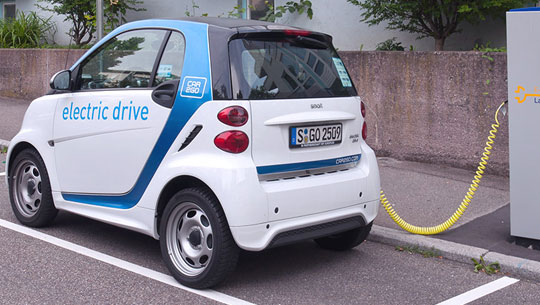(LiveMint)
A recent report by the World Health Organization revealed that 14 of the 20 most polluted cities in the world are in India. Emissions from the transportation sector contributed significantly to India’s pollution levels. As per the Union ministry of environment, forest and climate change’s estimates, the sector emitted about 188 MT of CO2 till 2010; road transport alone contributed to 87% of the emissions. This sector is also a large consumer of oil. India’s current oil import dependency is about 80%. According to the Petroleum Planning and Analysis Cell, diesel and petrol contribute to about 40% and 13% of oil consumption, respectively. The cell estimated, in 2014, that 70% of diesel and 100% of petrol demand was from transportation.
Given the context, electric vehicles (EVs) promise to be game changers. EVs are at least 3 to 3.5 times more energy efficient than the traditional internal combustion engine-based vehicles for routine operations. Also, there is no emission from EVs, hence, no local pollution. Thus, transitioning to EVs cannot only be a significant step towards reducing oil imports, but can also aid in improving local air quality.
Globally, there have been various efforts (including financial/non-financial incentives to end users) to promote EVs. Many countries have rallied towards the EV30@30 campaign, which aims for 30% sales share of EVs by 2030. The Netherlands, Ireland and Norway are leading the way, aiming to achieve 100% EV sales in passenger light duty vehicles and buses by 2030.




